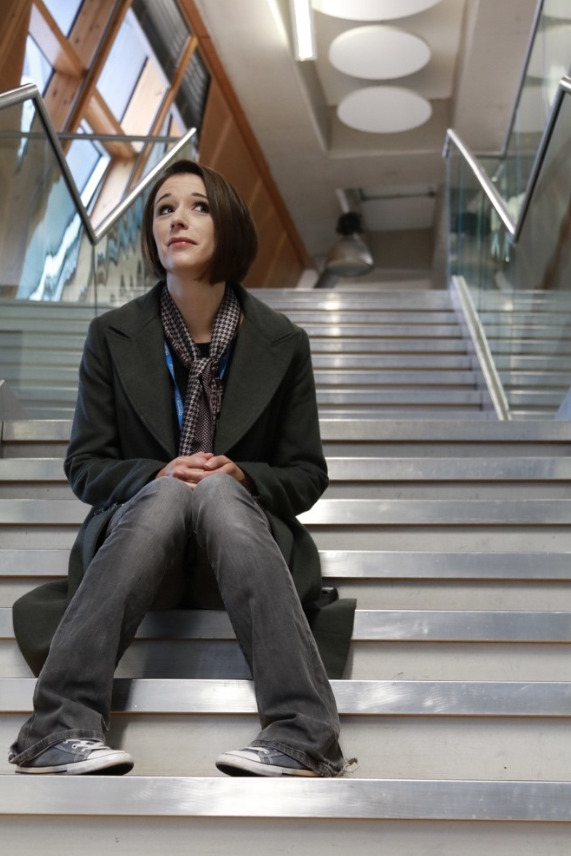The Postdigital Intimacies theme in the Centre for Postdigital Cultures aims to produce world-leading research through collaboration and co-creation, equity and social justice, and offer diverse and shared understandings of intimacy as a relational concept. It looks to create new accounts of our worlds, how we feel, and how such feeling is shaped by the embeddedness of digital culture.

Our vision is one where intimacy connects and reaches out across a range of events, people, objects, feelings, data and technologies, recognising this as both our contribution to practice and theory, while the traces of often marginalised ways of thinking exist in and through our work.
We take the ‘postdigital’ to delineate a context where the digital is invisible and naturalised in how we think, act, feel; attending to the postdigital could fundamentally shape new accounts of how we understand ourselves, others, and the worlds around us. In both theory and practice we draw on feminist intersectionality, social justice and our positioning of intimacy as something more-than-digital, entangled with the digital but also reaching far beyond to include a web of human and non-human agents, to inform a research theme.
At the thematic core of our feeling around postdigital intimacies are relationalities: with ourselves, with others, and with our environment, as deeply affecting and affective, and both lasting and ephemeral. We also acknowledge the ways in which intimacy is also often oriented towards risk, and seek to attend to these failures of intimacy that manifest in ruptures, tension, conditionality, betrayal, non-consent, and even violence, even when there might be radical potential in such failed intimacies. Postdigital intimacies expose both the possibilities and vulnerabilities of living relationally and in worlds where we are – digital or not, and for better or worse – irrevocably bound to one another.
In current research, we will be working through our thematic core of ourselves, others and our environments: how they overlap and intersect, how they inform and animate the loci of intimacy as tenuous and complex, and how they challenge dichotomies of inside(r) and outside(r), public and private, human and non-human (or more-than-human), digital and more-than-digital, and embodied and disembodied.
team

Lindsay Anne Balfour is Assistant Professor of Digital Media in the Centre for Postdigital Cultures and works within the Postdigital Intimacies research cluster. She is an experienced, researcher, public speaker, and author with international experience in the non-profit sector and formal academia. She has held grants from the Social Sciences and Humanities Research Council of Canada and the Andrew W. Mellon Foundation and earned her PhD from the University of British Columbia. Her research draws on the philosophical concept of hospitality to consider the relationship between humans and machines (HCI), and employs an intersectional feminist and cultural studies perspective to look at digital intimacies. Currently, she is conducting feminist analyses of surveillance capitalism and embodied computing including the concept of “tracking” through wearables, implantables, and ingestibles (FemTech). She is PI on a project in development for the Economic and Social Research Council that researches access and inclusion in FemTech, and the efficacy of digital interventions for gender-based violence. This work offers wider benefits concerning the global health of women, such as those outlined in the UN Sustainable Development Goals regarding Women and Girls, and in particular targets focusing on sexual and reproductive health.
Dr Balfour works with both academics and industry experts (including policymakers and regulators). Her most recent project was a pump-prime grant funded by Research England – “Preliminary Policy Stakeholder Engagement for Emergent FemTech and Women’s Digital Health.” She is also Co-I on the project “Postdigital Intimacies for Online Safety: Building policy recommendations through co-production partner workshops.”

Dr. Adrienne Evans is Reader for Media in the Centre for Postdigital Cultures at Coventry University, UK, where she leads the Postdigital Intimacies cluster. Her research focuses on accounts of intimacy in the context of a postfeminist sensibility, and is interested in exploring how digital feeling shapes expectations of the ‘good life’. In her research, she is interested in creating new ways of thinking about notions of the good life, wellbeing and positivity through digital technology in relation to the vulnerabilities these concepts engender, by seeking to stimulate more inclusive, equitable and feminist-inspired ways of being in the world. She is co-author of Technologies of Sexiness (2014), Postfeminism and Health (2018) and Postfeminism and Body Image (2022), and Digital Feeling (2023). She is PI of the AHRC network Postdigital Intimacies and the Networked Public-Private, CI on the Marsden Fund (New Zealand) project Exploring the possibilities of menstruation and perimenopause tracking apps for people with diverse embodied experiences.

Godswill Ezeonyeka is a PhD researcher in the Centre for Postdigital Cultures at Coventry University. His research uses the practice of documentary filmmaking to investigate the revolution of social media activism in Nigeria. He has an MA in Communications, Culture and Media from Coventry University.
As part of their PhD research, Godswill and Abhiram Thiruthummal have developed https://storiesofendsars.postdigitalcultures.org/, an interactive introduction to Nigeria’s fight against police brutality.

Marcus Maloney is Assistant Professor of Sociology in the Centre for Postdigital Cultures, Coventry University. His research focuses on men and masculinities online; ideological contestations in digital spaces; video game narratives, cultures, and communities; and postdigital intimacies and socialities. Marcus has published widely in these areas, including articles in Cultural Sociology, New Media & Society, and Games and Culture. His most recent book is Gender, Masculinity and Video Gaming: Analysing Reddit’s r/gaming Community (Palgrave 2019).

Dr. Sarah Kate Merry (she/her) is a Research Fellow in the Centre for Postdigital Cultures, and is part of the Postdigital Intimacies research cluster. Sarah is a social scientist with a background in information studies, whose research focuses on the impact of the internet on social interactions, particularly among marginalised communities. Her current work includes investigating the benefits of ‘lurking’ (non-participatory presence) in online peer support groups for people with adult diagnoses of ADHD, and the impact of social media on the experiences of newly-diagnosed neurodistinct people.
Sarah’s broader research interests including friendship creation and maintenance online, behaviour in fan communities, and online safety for vulnerable adults. In the recent project Postdigital Intimacies for Online Safety: Building policy recommendations through co-production partner workshops, undertaken with colleagues in Postdigital Intimacies, she focused on the gaps in current legislation regarding online harms for vulnerable adults, such as those with mental health disorders and/or who are neurodistinct.
Hannah L. Westwood is a PhD researcher in the Centre for Postdigital Cultures at Coventry University, on a fully funded trailblazers studentship. She is investigating the FemTech industry,and how it can become more equitable, accessible and inclusive, with a particular focus on digital fertility trackers and digital contraception. Hannah has a forthcoming chapter ‘Reinventing the Beauty Myth? FemTech’s Cost to the Consumer’ in the edited collection Who is FemTech For? She graduated with an MA in Women’s Studies from the University of York in 2022.
projects

Preliminary Policy Stakeholder Engagement for Emergent FemTech and Women’s Digital Health
POSTDIGITAL INTIMACIES
publications
(descending by date)


